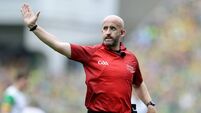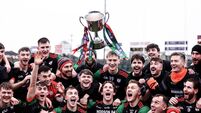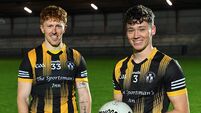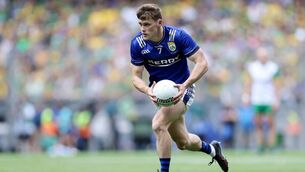Canning willing to do whatever it takes
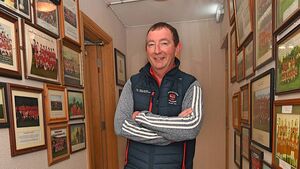
Frank Canning: “The supporters are vital especially for the players, who acknowledge that support."
Perhaps the best example of Frank Canning’s willingness to go the extra mile comes from someone other than himself.
In his brother Joe’s new book entitled ‘My Story’, the youngest of the Canning clan describes Frank’s raw desire to give his all to any cause, noting his willingness to do anything to play in the 1995 county final.
That year, Portumna reached their first county final, which they would lose to Sarsfields. Frank, their top scorer in the Championship up until that date, had suffered a nasty shin injury during a challenge match the week before the final.
As he lay in Portiuncula hospital, the doctors refused to allow him to leave. So, Frank took matters into his own hands.
“I just got an infection in my shin. We had just played a challenge match, and I got a belt in the shin. Real harmless with just a small trickle of blood in it but a week later my leg swelled up so I spent a week in Portiuncula in October ‘95.
“The one thing I can really remember is that we lost the final. They wouldn’t let me out, so I had to sign myself out. It is no big deal, that is what you do. We lost the match. That is what I remember most,” the Pádraig Pearses manager noted.
Despite coming up against St. Brigid’s and Corofin in their campaign to date, Pádraig Pearses have never sought the underdog tag.
If it is handed to them then they won’t complain but they will stick to their own preparations. When pressed on where this refusal to hype up opposition players or teams comes from, Canning references his time with Portumna.
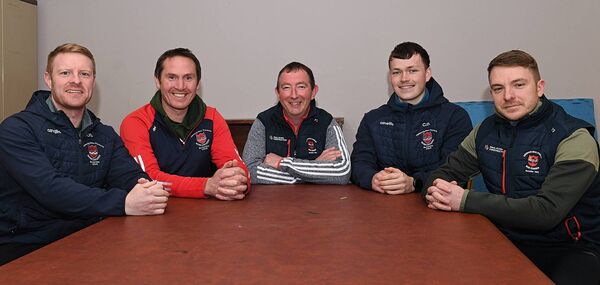
“I probably had it automatically from Portumna. What people don’t realise is that with Portumna I lost a lot more than I won but that could be said for any club in Roscommon, any club in Galway or any club in Ireland. You have to go out believing you are going to win.
“If you don’t believe straight away and you are on the back foot and the opposition, get a couple of scores, like Corofin got the first two scores against us, I have no doubt in my mind that people at the match were looking and thinking here we go again, including yourselves possibly.
“Three or four minutes at the start and a team can start thinking ‘oh’. If a team have that sense, you are finished before you even start. You have to have belief in yourself. That comes from the training you do and the players.
"As I always say it is the players that win everything and all we are trying to do is facilitate them. That is the reality for me. The more you worry about them (the opposition), the more you build them up. Then psychologically they turn into something that they are not,” he noted.
Canning admits the semifinal against Mohill was a frustrating watch as his side led 0-3 to 0-2 at half time before surging clear.
“A very frustrating part of football for me that 15, 16 points wins most games so that is seven or eight a half. When a team puts 15 behind the ball or 14 and the goalie it limits you by three or four points and then a goal for them on the breakaway, well that is half the game gone. If you think about it like that, that is where the frustration sets in.
“If they get lucky and all they want is one break to get a goal and suddenly all your hard work is right out the window.
"That is where it is a great leveller, and it is an eye opener sometimes. It can happen any time of year but hopefully the new rules will change that.
"Nobody wants to see that half of football that we seen in the Connacht semi final including myself, irrespective if you are going in at half time winning.
"It is not sport to me. It is just frustration,” he notes.
At half time of Pearses’ win over Corofin, the away side’s support gave their team a standing ovation as their charges led 1-8 to 0-3 despite falling two points behind early doors.
Canning states he only saw this show of support after the game, but he feels the Pearses contingent have a key role to play.
“The supporters are vital especially for the players. Players, players, players, that is what it is all about.
"The players acknowledge that support and the players said at half time that they saw that standing ovation, because they were running into it.
"While we didn’t see it, the players felt it and that is the key thing,” he said.
